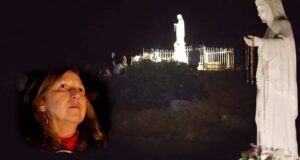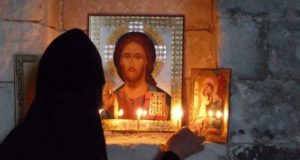المطران Matthieu Rougé: إجراء غير محترم وإذلال للمسيحيين
المطران Xavier Malle: إجراء الحكومة عقوبة
المطران Bernard Ginoux: لدخول كنائسنا ، ومواصلة المطالبة بالقداس ، وسنأتي نحن الأساقفة والكهنة للاحتفال بالذبيحة الإلهية – القداس
هل ستأتي الشرطة وتحسب المؤمنين؟ الكهنة ليسوا مساعدين للشرطة
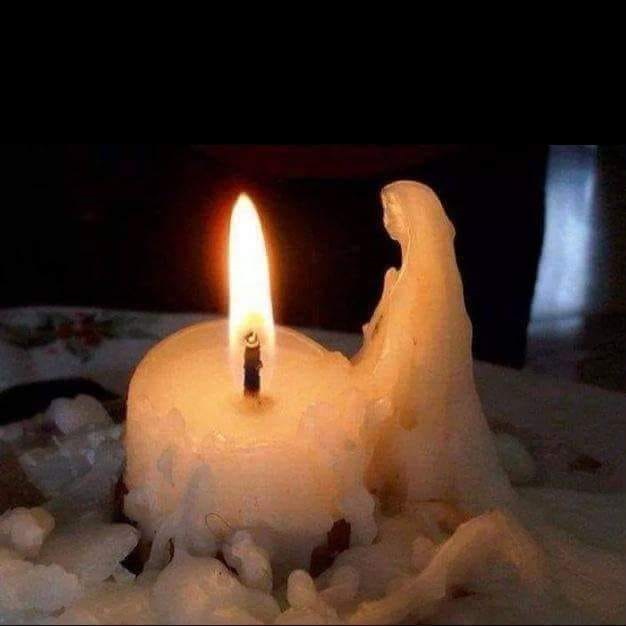
إن وضع القيود الصارمة على البشر، وفرض سبل التحرك فيما يخصّ العبادة بالعموم، وخاصة الكاثوليكية ، يذكر الأسقف أثناسيوس شنايدر بطفولته في قيرغيزستان الخاضعة للحكم السوفياتي (النظام الشيوعي السابق)، كما قال لصحيفة “https://www.bvoltaire.fr” يوم الثلاثاء (24 ت2-2020).
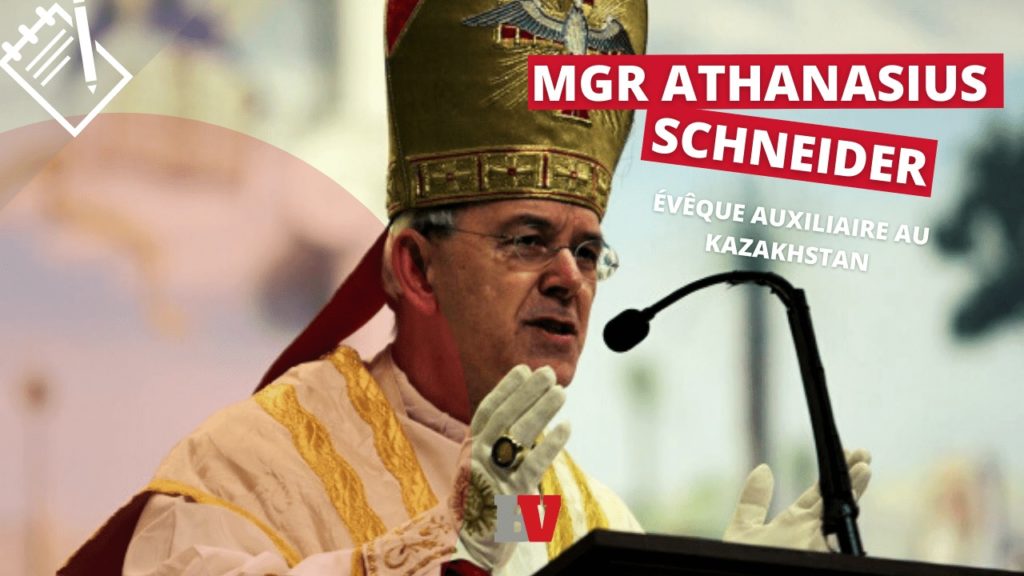
إن الحظر الصارم على العبادة العامة في الكنائس في ما يسمى بالغرب الحر ، ولا سيما في فرنسا وأيرلندا والمملكة المتحدة ، هو علامة لا لبس فيها على اضطهاد الكنيسة من قبل المؤسسة السياسية الحاكمة. يجب أن توقظنا هذه الأحداث جميعًا. يعيش العديد من الكاثوليك حتى الآن في وهم أن العالم والطبقة السياسية في عصرنا أظهروا تعاطفًا مع الكنيسة. نأمل أن تنفتح عيونهم أخيرًا على حقيقة أن الكنيسة ليست من هذا العالم وأن قادة هذا العالم ، بعد أن سلبوا المسيح ملكه الاجتماعي ، سيضطهدونه وأتباعه دائمًا.
تلقت كلماته صدى غير متوقع – فيما يتعلق بأساقفة فرنسا – في ذلك المساء بالذات.
بعد ثلاثة أسابيع من الإغلاق ، وهو الثاني من نوعه المفروض على فرنسا باسم أزمة كوفيد -19 ، أدلى الرئيس إيمانويل ماكرون ببيان رسمي مدته 26 دقيقة نقلته جميع القنوات التلفزيونية الرئيسية مساء الثلاثاء. واعترف بأن تلوثات الفيروس التاجي ، والاستشفاء ، وكذلك الوفيات الناجمة عن COVID-19 في اتجاه هبوطي وهي أقل خطورة بكثير مما توقعه هو نفسه عند إعلان الإغلاق الحالي لمدة أربعة أسابيع.
عزا ماكرون الوضع “الأفضل من المتوقع” إلى الإجراءات التي فرضتها حكومته ، على الرغم من أن الدراسات الاستقصائية، وهي المؤشر الأول لتقلبات انتشار فيروس ووهان التاجي ، أظهرت أن الاتجاهات الهبوطية ظهرت قبل اتخاذ التدابير.
سيستمر الإغلاق ، مع التزام ملاحظات التفويض الذاتي في كل مرة يخرج فيها أي فرد من منزله في ظل ظروف محدودة. العقوبات الشديدة تعاقب من يعصي. من ناحية أخرى ، سيتم السماح للمتاجر الصغيرة ، التي أُجبرت على الإغلاق أثناء فتح محلات السوبر ماركت ووسائل النقل العام والمدارس ، بفتح أبوابها في 28 نوفمبر ، شرط اتباع بروتوكولات صحية صارمة..
إذا سار كل شيء كما أعلن ماكرون ، فسيتم رفع الإغلاق والتفويضات الذاتية في 15 ديسمبر. سيتم فرض حظر تجول ، باستثناء ليلة عيد الميلاد ورأس السنة الجديدة ، ولكن يجب أن تظل المطاعم والحانات وأماكن الاستقبال الأخرى مغلقة حتى 20 يناير في انتظار المزيد من التقييمات – رغم معاناة عدد كبير من الشركات ورغم رشّ السلطات النقود مثل النوافير “للتعويض” عن عمليات الإغلاق.
تم تسريع مسألة العبادة العامة من قبل ماكرون في جملة واحدة. وقال “فيما يتعلق بالعبادة الدينية ، سيتم السماح مرة أخرى بالخدمات ضمن الحد الصارم البالغ 30 شخصًا“.
قوبل إعلانه بالغضب من قبل الكاثوليك من جميع الاتجاهات ، نظرًا لحقيقة أنه مهما كانت المتطلبات الصحية ، يمكن أن تملأ كنيسة صغيرة لتفيض بثلاثين شخصًا حاضرين ، بينما في بعض الكاتدرائيات ، فإن القاعدة تعادل السماح بـ 200 متر مربع لكل مشارك.
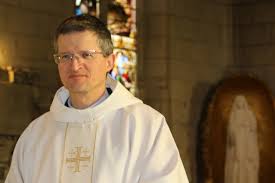
عبّر الكاثوليك “Novus Ordo” عن غضبهم على وسائل التواصل الاجتماعي ، متهمين ماكرون بـ “عدم الاحترام” و “الرغبة في إذلال” المؤمنين. ووصف المطران كزافييه ماليه (Xavier Malle) من جلب هذا الإجراء بأنه “عقوبة“. وصفها المطران ماتيو روجي (Bishop Matthieu Rougé) بأنها “غير متماسكة” و “غير محترمة” لأنه خلال المحادثات بين الأساقفة ورئيس الوزراء جان كاستكس ووزير الداخلية جيرار دارمانين في 16 نوفمبر ، تم الاتفاق على أن الحضور سيكون “متناسبًا” مع حجم الكنائس.
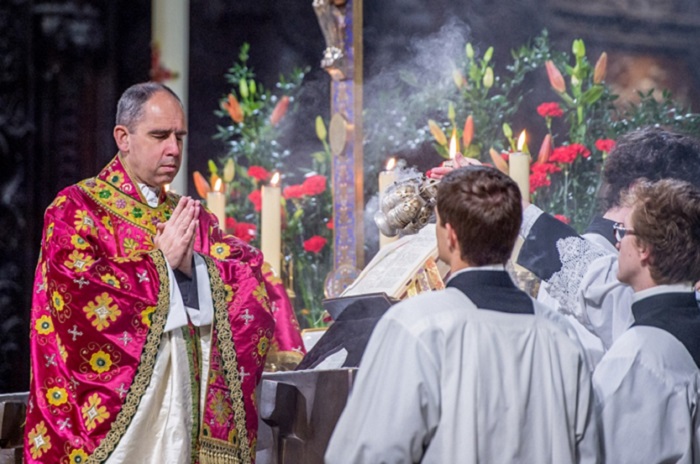
أعاد المطران برنارد جينوكس (Bishop Bernard Ginoux) من مونتوبان (Montauban) تغريد دعوته السابقة للكاثوليك “لدخول كنائسنا ، ومواصلة المطالبة بالقداس ، وسنأتي نحن الأساقفة والكهنة للاحتفال بالذبيحة الإلهية – القداس”.
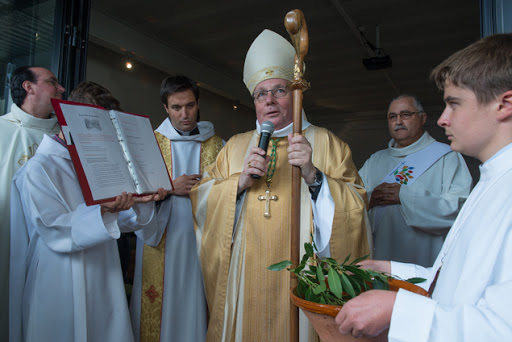
على السؤال: “إذا كانت الكنائس ممتلئة ، هل تعتقد أنه سيكون هناك ما يكفي من الشرطة لتغريم الجميع؟” أجاب Ginoux: “هذا بالضبط ما أقترح.
قام مؤتمر الأساقفة الفرنسيين على الفور بنشر تقرير مشترك
نشر مؤتمر الأساقفة الفرنسيين على الفور بيانًا مساء الثلاثاء قال فيه إنه “يشعر بخيبة أمل ومفاجأة” من إعلان ماكرون ، الذي “لا يتفق بأي حال من الأحوال” مع الاتفاق الذي تم التوصل إليه بشأن “الجلوس بثلث” أماكن العبادة. ووصفت قاعدة “الثلاثين شخصًا” بأنها “غير واقعية وغير قابلة للتطبيق”.
في بعض الأماكن ، حتى قاعدة “الثلث” سيكون من الصعب تطبيقها ، وهي على أي حال تنازل متنازع عليه للسلطات العامة التي ليس لها سلطة قانونية على ما يحدث في الكنائس طالما أن النظام العام ليس على المحك . لا يوجد دليل على وجود “مجموعات COVID-19” في الكنائس ، كما أوضح المجلس العلمي للحكومة قبل الإغلاق الثاني. لا تخضع محلات السوبر ماركت ووسائل النقل العام لأية قيود مماثلة لتلك المطبقة على الكنائس.
ولكن منذ بداية أزمة COVID-19 ، أصر غالبية الأساقفة الفرنسيين على أن “الحوار” مع القوى المهمة أمر بالغ الأهمية. انتقد العديد منهم الكاثوليك الذين تظاهروا من أجل عودة الجماهير العامة ، حتى أن البعض أظهروا أنفسهم أكثر شدة من السلطات المدنية ، مثل الأسقف أوبيتيت من باريس ، مما يشير إلى أن الكاثوليك الذين يتلقون المناولة على اللسان يمنعون زملائهم الكاثوليك من الحصول على إمكانية العودة إلى العبادة العامة.
يحسب له ، علق المطران أوبيتيت يوم الأربعاء في إذاعة نوتردام: “إنهم يأتون إلى كنائسنا ليغتالونا بالإرهاب الإسلامي ، ويذبحون أعناق المسالمين الذين يأتون للصلاة. ربما سيرسل جيرالد دارماني رجال الشرطة بالهراوات خلال القداس “. ووصف المطران أوبيتيت (Aupetit) قاعدة الثلاثين شخصًا بأنها سخيفة.
كان لرد الفعل غير المسبوق والموحد بشدة للكاثوليك الفرنسيين تأثير واحد بالفعل. ومساء الثلاثاء ، بحسب الأسقف إريك دي مولين بوفورت ، رئيس مؤتمر الأساقفة ، جرت محادثة هاتفية بينه وبين ماكرون…
شكا غيوم برنارد (Guillaume Bernard) ، مؤرخ القانون الذي يدرس في الجامعة الكاثوليكية في فيندي ، من أن نشر المقياس الجديد يوم الخميس سيأتي متأخرًا جدًا بحيث لن يكون لدى الكاثوليك وقت قانوني لإعلان إعلانات جديدة للقداس يوم الأحد المقبل. وقال: “إنهم ما زالوا يسخرون من الكاثوليك” ، مضيفًا: “أي تقييد لعدد المؤمنين هو فضيحة” و: “هل ستأتي الشرطة وتحسب المؤمنين؟ الكهنة ليسوا مساعدين للشرطة “.
المصدر: lifesitenews
https://www.bvoltaire.fr/mgr-athanasius-schneider
French govt enrages Catholic faithful with new 30-person limit on Masses
One French bishop exhorted the faithful to ‘invade our churches, continue demanding Mass and we bishops and priests will come to celebrate.’
The present situation of religions, and particularly of Catholicism, in several countries of the world through severe state-imposed restrictions on public worship reminds Bishop Athanasius Schneider of his childhood in Soviet-ruled Kyrgyzstan, the auxiliary bishop of Nur-Sultan told Gabrielle Cluzel of the independent medium Boulevard Voltaire in France on Tuesday. Reacting to her description of clandestine Masses, reporting of them to the authorities and police intervention, Bishop Schneider said:
The uncompromising ban on public worship in churches in the so-called free West, particularly in France, in Ireland, and the United Kingdom, is an unmistakable sign of the persecution of the Church by the ruling political establishment. These events should awaken us all. Many Catholics have, until now, lived under the illusion that the world and the political class of our time showed sympathy for the Church. It is to be hoped that their eyes have finally been opened to the truth that the Church is not of this world and that the leaders of this world, having robbed Christ of his social kingship, will always persecute Him and His followers.
His words received an unexpected echo — as far as the Bishops of France are concerned — that very evening.
After three weeks of lockdown, the second of its kind imposed on France in the name of the COVID-19 crisis, President Emmanuel Macron made a solemn 26-minute statement transmitted by all the main television channels on Tuesday evening. He acknowledged that coronavirus contaminations, hospitalizations, and occupation of I.C. beds as well as deaths due to (or, as is more probable, “with”) COVID-19 are on a downward trend and are a great deal less serious than he had himself forecast when announcing the present four-week lockdown.
Macron attributed the “better than expected” situation to measures imposed by his government, although surveys of used waters, the first indicator of the fluctuations of the Wuhan coronavirus’s spread, have shown that the downward trends appeared before measures were taken (and also that compulsory face masks, indoors and then in outside in Marseille, in no way stopped the spread of contagion).
Lockdown will continue, with the Kafkaesque obligation to write out self-authorization notes every time you step outside your house under limited conditions. Severe penalties sanction those who disobey. On the other hand, small shops, which were forced to close and left to agonize while supermarkets, public transport, and schools are open, will be permitted to open on November 28, provided they follow strict sanitary protocols, and are also being encouraged to open every Sunday between then and Christmas.
If all goes as Macron announced, lockdown and self-authorizations will be lifted on December 15. A 9 P.M. curfew will be installed, except on Christmas Eve and New Year’s Eve, but restaurants, bars, and other reception venues will have to remain closed until January 20 pending further assessments — a sure death warrant for a large number of these “convivial” businesses, even if the authorities are spraying money like fountains to “compensate” for the closures.
The question of public worship was expedited by Macron in a single sentence. “As to religious worship, services will once again be allowed within the strict limit of 30 people,” he said.
His declaration was met with anger by Catholics of all tendencies, in view of the fact that whatever the sanitary requirements, a small chapel can fill to overflowing with thirty people present, while in some cathedrals, the rule would be equivalent to allowing 200 square meters to each participant.
Traditionalists and “Novus Ordo” Catholics alike vented their fury on social media, accusing Macron of “disrespect” and “a desire to humiliate” believers. Bishop Xavier Malle of Gap called the measure a “punishment.” Bishop Matthieu Rougé qualified it as “incoherent” and “disrespectful” because during talks between the bishops and Prime Minister Jean Castex and interior minister Gérard Darmanin on November 16, it was agreed that attendance would be “proportionate” to the size of churches.
Bishop Bernard Ginoux of Montauban retweeted his former call to Catholics to “invade our churches, continue demanding Mass and we bishops and priests will come to celebrate.” “You are the people of God. This tweet has never been so timely,” he added.
To the question: “If the churches were full, do you think there would be enough police to fine everyone?” Ginoux replied: “That’s exactly what I’m proposing, but will there be enough Catholics to invade our churches when parish Masses are scheduled? Catholics, look alive! We, your bishops and priests, will be there.”
The French Bishops’ Conference promptly published a communiqué on Tuesday evening saying it was “both disappointed and surprised” by Macron’s announcement, which was “in no way consistent” with the agreement reached of a possible “one third occupation” of places of worship. It called the “30 persons” rule “unrealistic and inapplicable.”
In some places, even the “one third” rule will be hard to apply, and it is in any case a disputed concession to the public authorities who have no legal power over what happens in churches as long as the public order is not at stake. There is no evidence of “COVID-19 clusters” in churches, as the government’s own scientific council had made clear before the second lockdown. Supermarkets and public transport are not subject to any limits similar to the one applied to churches.
But from the beginning of the COVID-19 crisis, a majority of French bishops have insisted that “dialogue” with the powers that be is paramount. Many of them slammed Catholics who demonstrated for the return of public Masses, and some even showed themselves more severe than the civil authorities, such as Bishop Aupetit of Paris suggesting that Catholics receiving Communion on the tongue were preventing their fellow Catholics from obtaining the possibility to return to public worship.
To his credit, Bishop Aupetit commented this Wednesday on Radio Notre Dame: “They come into our churches to assassinate us with Islamic terrorism, they slit the throats of the peaceful people who come to pray. Perhaps Gérald Darmani will send policemen with truncheons during Mass.” He called the 30-person rule ridiculous.
The unprecedented and deeply united reaction of French Catholics has already had one effect. On Tuesday evening, according to Bishop Eric de Moulins-Beaufort, president of the bishops’ conference, a telephone conversation took place between himself and Macron, with the result that a commitment was made that a “realistic gauge,” albeit a strict one, will be established by Thursday morning and applied in two stages: resume public worship on Saturday, November 28, followed by a re-evaluation on December 15.
Guillaume Bernard, a law historian who teaches at the Catholic University of the Vendée, complained that the publication of the new gauge on Thursday will come so late that Catholics will not have time legally to declare new announcements for the Mass this coming Sunday. “They are still mocking Catholics,” he said, adding: “Any limitation of the numbers of faithful is scandalous,” and: “Will the police come and count the faithful? Priests are not police auxiliaries.”
Returning to Bishop Schneider’s remarks to Gabrielle Cluzel, the recent events have made abundantly clear that the Catholic Church’s authorities in France, though showing a fighting spirit many thought they had lost, have not taken the true measure of official contempt of followers of Christ on the part of the ruling political powers.
Bishop Schneider saluted the courage of the many French Catholics, including young people and children, who demonstrated these last weeks to obtain the right to public Christian worship: “Their example will remain a glorious page in the history of contemporary French Catholicism,” he said.
“God chooses the ‘little ones’ to shame many clerical apparatchiks and bishops, who are cowardly in front of the powerful in the world of politics and media, and who keep silent for their own benefit. We are living in a very astonishing situation: the little sheep are not afraid of the wolves, while the shepherds hide from the wolves. We so need many true shepherds following the example of Jesus and the many courageous holy bishops in the history of the Church, such as Saint Athanasius, Hilary, Ambrose, John Chrysostom, and in more recent times the example of a Cardinal Pius, a Saint Pius X, a Blessed Cardinal von Galen,” he said.
Will the French bishops defend their flock, as some of them are doing more openly? Jean-Marie Guénois, the specialist of religious affairs of Le Figaro, wrote a long analysis at the beginning of this week arguing that the present situation is revealing a divide between those who believe in the True Presence of Our Lord in the Eucharist and those who see Mass as a mere community gathering.
Bishop Schneider commented on this point: “I think this is correct. The ban on public worship and the incomprehensibly timid reaction of many bishops is exposing the real deep wound in the current crisis of the Church. This wound is the ‘Eucharistic wound.’ Referring to the question of Jesus in the Gospel: ‘Who do they say is the Son of Man?’ (Mt. 16:13), this question now arises for every Catholic, every priest and every bishop: ‘What and who do you think the Eucharist is?’ We must take the example of our brothers and sisters from the time of persecution in the first centuries and proclaim loud and clear: ‘Without the Holy Eucharist, without the Sunday Mass, we cannot live!’ (sine Dominico non possumus). May the fire of the courageous confession [of faith] of the French Catholics, which we have seen on recent Sundays, burn, if possible, in all the cities of France and also in other Catholic countries, and may this dignified and intrepid cry resound: ‘Without Sunday Mass, we cannot live!’”
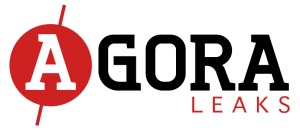 Agoraleaks Agoraleaks
Agoraleaks Agoraleaks




